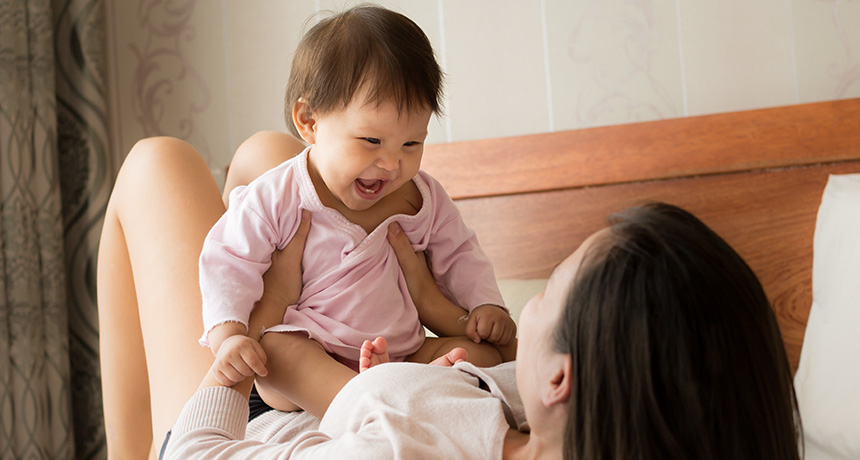Language heard, but never spoken, by young babies bestows a hidden benefit

Babies who heard Korean spoken in their first six months of life were better able to pick up the language later as adults, a study finds. The results show how early language exposure patterns the brain in ways that may not be revealed for decades, if ever.
globalmoments/iStockphoto







